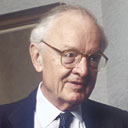WEBSTER’S THIRD FAILS JUSTICE SCALIA’S WORD TEST
Five decades after its release, Webster’s Third, considered the most controversial dictionary in the English language, lingers in the memory of the Supreme Court’s leading wordsmith, Justice Antonin Scalia. During arguments on Feb. 21 in Taniguchi v. Kan Pacific, Jones Day‘s Michael Fried argued that his opponent, Mayer Brown‘s Dan Himmelfarb, relied on only one dictionary — Webster’s Third — for his argument that “interpreter” has a broad meaning that includes “translator,” while the majority of dictionaries exclude it. “Webster’s Third,” interjected Scalia, “as I recall, is the dictionary that defines ‘imply’ to mean ‘infer.’ ” [Pause.] “It does, your Honor,” Fried replied. Scalia continued, “And ‘infer’ to mean ‘imply.’ It’s not a very good dictionary.” The nimble Fried quickly added, “Well, the Court in MCI v. AT&T did indicate that.” That 1994 decision was written by — you guessed it — Scalia. Now some trivia from a 2010 research paper by then-Duke Law School student Phillip Rubin: Before 1864, the Court used dictionaries as authority only three times, but they were used to define 220 terms during the 1990 through 1998 terms, and continuing the trend, in 23 cases in the 2008-09 term alone. — Marcia Coyle
 MCPHERSON, 82: ‘ONE OF THE MOST DECENT’
MCPHERSON, 82: ‘ONE OF THE MOST DECENT’



